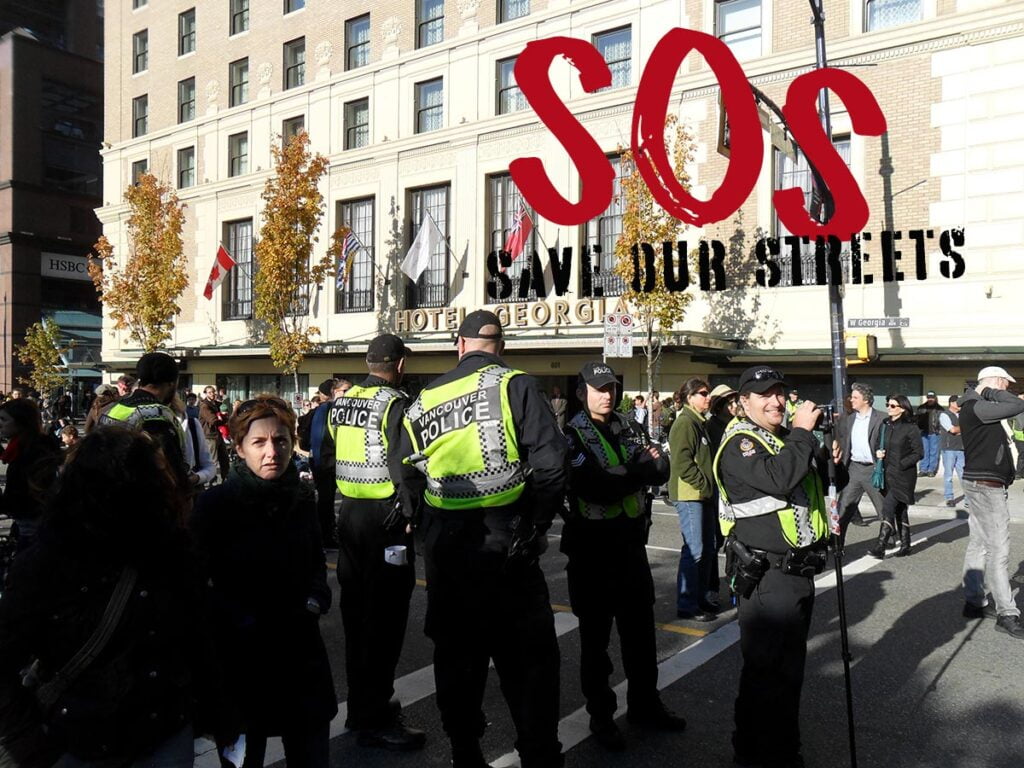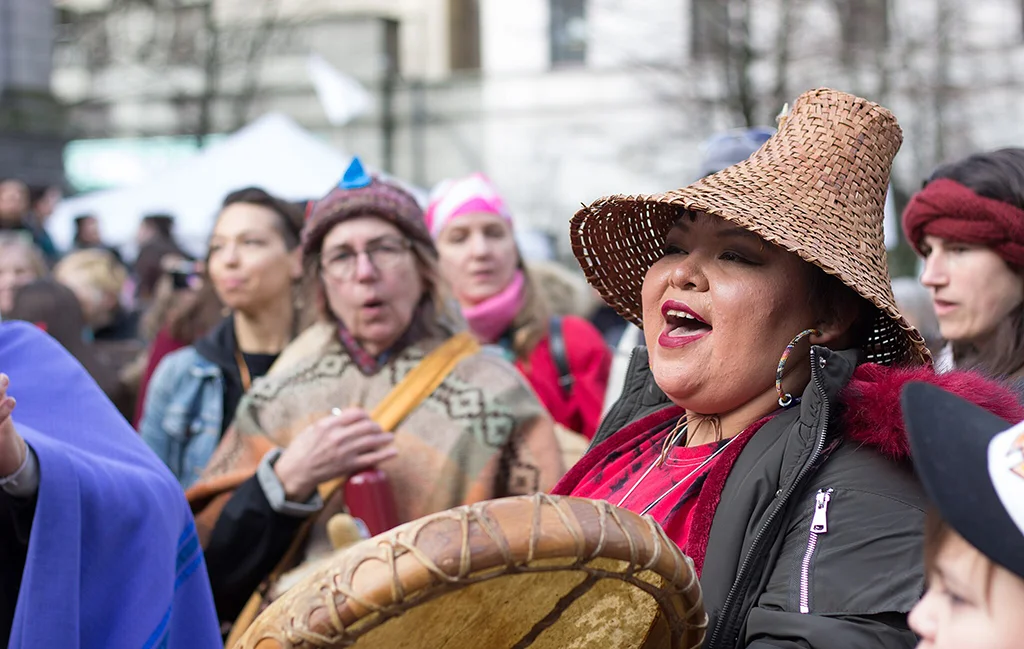As the opioid crisis and rising crime continue to shape public discourse, a new province-wide survey conducted by Research Co. has revealed that British Columbians are fed up with the status quo. The Save Our Streets campaign, a non-partisan initiative co-founded by business leaders like London Drugs president Clint Mahlman, released the survey results, which show a widespread demand for new strategies to tackle crime, addiction, and public safety.
While official crime data from Statistics Canada paints a somewhat nuanced picture, the feelings on the ground tell a very different story. People across B.C. are concerned about the increasing rates of violence, retail crime, and the erosion of trust in the justice system. The numbers are compelling, and the message is clear: British Columbians want change.
Crime and Safety: Perception vs. Reality
According to the Save Our Streets survey, 55% of respondents believe the level of criminal activity in their community has increased in the past four years, with 74% saying that crime and violence are impacting their quality of life. These perceptions, however, don’t completely align with the hard data.
Statistics Canada’s 2023 Crime Severity Index showed that while violent crime in B.C. decreased by 4.3% over the past year, non-violent crime increased by nearly 7%. Despite this, violent crime remains a significant concern, especially in urban centers like Vancouver, where high-profile incidents—such as the recent knife attacks downtown—have left residents shaken.
So why the disconnect? According to Metro Vancouver Crime Stoppers executive director Linda Annis, part of the problem is that crimes are going unreported. A staggering 88% of British Columbians believe that crimes are not being reported, with 68% citing a lack of confidence in the justice system. As Annis notes, “By not reporting, we get the impression that crime is going down, when it really is not.”
The Retail Crime Crisis: A Business Perspective
While the impact of crime is felt by residents, businesses are also struggling. Retail crime has become a significant issue, and it’s affecting more than just bottom lines. According to the survey, 80% of respondents believe retail crime is making the products they buy more expensive, and business owners are bearing the brunt of this economic burden.
The Save Our Streets campaign, which counts over 100 business members, was launched in part due to these concerns. Clint Mahlman, the president of London Drugs, highlighted that retail crime, open drug use, and street disorder are becoming issues that “deserve to be a part of this election campaign.” Eighty-seven percent of respondents agree, calling for all levels of government to do more to protect employees from acts of violence and random vandalism.
For many businesses, the rise in theft and vandalism has been catastrophic. Store owners are dealing with rising security costs and constant repairs. The emotional toll on employees, many of whom have been victims of assaults or threats, only adds to the urgency of addressing the crisis.
Trust in the System is Eroding
The survey results also highlight a growing mistrust of the justice system. Only 38% of British Columbians believe the justice system balances the rights of offenders and victims. This dissatisfaction is deeply concerning, as it reflects a broader feeling that the system is not doing enough to protect communities.
People feel vulnerable, and this is reflected in their behavior. 58% of respondents admitted there are areas in their community they avoid due to safety concerns, while 50% fear for their own safety. These numbers are alarming, especially in a province known for its idyllic landscapes and vibrant urban centers. The underlying issue isn’t just crime—it’s the perception that the system meant to protect us is failing.
Addiction and Mental Health: Time for a New Approach
Beyond crime, addiction continues to be one of the most pressing social issues in British Columbia. The opioid crisis has devastated communities, and the current strategies don’t seem to be working. That’s why the Save Our Streets survey also asked British Columbians what they think should be done to address addiction, mental health, and rehabilitation.
A clear majority supports new, bold approaches. Eighty-three percent of respondents want more investment in mental health facilities, while the same number supports launching education and awareness campaigns about drug use.
Another significant takeaway: 81% of British Columbians believe more spaces for drug rehabilitation need to be created. As the opioid crisis worsens, access to recovery programs is vital. Furthermore, 79% support providing housing units to those committed to entering detox programs, a crucial step in ensuring those struggling with addiction have a chance to recover in a stable environment.
Is Harm Reduction Enough?
Harm reduction strategies, such as safe injection sites, have been a contentious topic for years, especially in Vancouver. These strategies aim to minimize the negative effects of drug use without necessarily reducing drug consumption itself.
According to the survey, 53% of respondents support expanding harm reduction strategies, but the appetite for a more comprehensive solution is stronger. Sixty-three percent support establishing “safe supply” programs, where medical professionals prescribe alternatives to dangerous street drugs. This approach is seen by some as a safer, more controlled way to manage addiction, but it still faces opposition from those who believe in abstinence-based programs.
Interestingly, 73% support a “carrot-and-stick” approach where individuals charged with minor drug-related offenses can avoid fines or incarceration if they voluntarily enter and complete a detox program. This aligns with a broader shift toward rehabilitation over punishment for non-violent offenders, especially those dealing with addiction.
Time for Government to Act
With British Columbians clearly dissatisfied with the current state of crime and addiction in their communities, the question is: What will the government do about it? The survey findings are not just statistics; they are a rallying cry for change. As Save Our Streets co-founder Jess Ketchum put it, “Every corner of British Columbia came together to tell government at every level that they needed to find solutions to these problems.”
The upcoming elections will no doubt focus heavily on crime, addiction, and public safety. With 74% of residents saying crime impacts their quality of life, and a majority calling for more action from both provincial and municipal governments, it’s clear that this issue is top of mind for voters.
A Province at a Crossroads
British Columbia is at a critical juncture. With public confidence in the justice system eroding and both crime and addiction crises worsening, the demand for new approaches is impossible to ignore. The findings of the Save Our Streets survey highlight the urgent need for comprehensive solutions—from tougher crime prevention strategies to more accessible rehabilitation programs.
British Columbians are not asking for a quick fix; they are demanding long-term, sustainable change. As this conversation heats up in political circles, the question remains: Will the government rise to the challenge, or will the people of B.C. continue to feel unsafe in their own communities?
What do you think? Should the government focus on more punitive measures for crime, or is rehabilitation the key to improving public safety? Let us know in the comments below.
Glenn is dedicated to scrutinizing government actions affecting the Downtown Eastside and holding those in power accountable for their commitments. With a focus on transparency and policy analysis, his writing aims to expose gaps between promises and outcomes, pushing for meaningful changes that benefit the community.






Leave a Comment